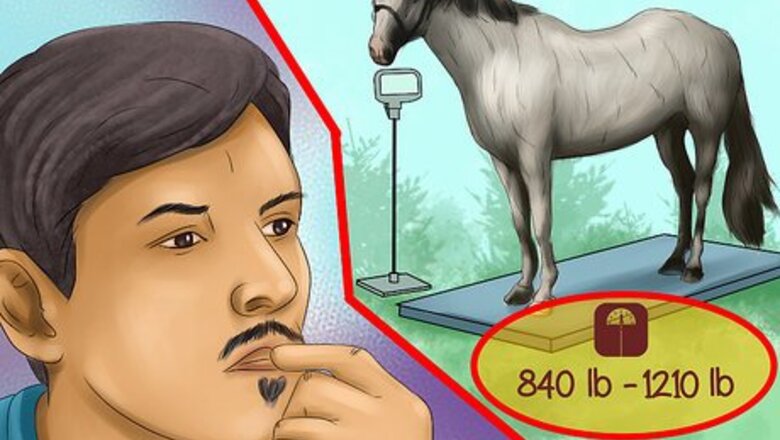
views
Supplementing Your Horse’s Diet with Magnesium
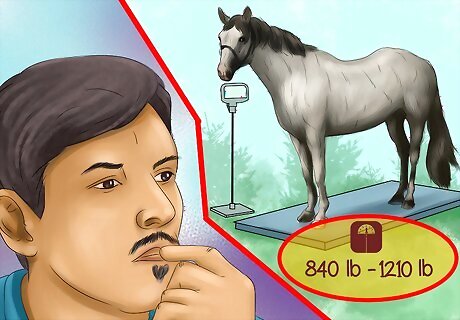
Determine your horse's weight. In order to provide your horse with the correct amount of magnesium, you will need to know how much your horse weighs. Depending on its age and breed, your horse could weigh anywhere from 840 to 1210 lbs. (380 to 550 kilograms). Your veterinarian should have a scale to weigh your horse on. You can also approximate your horse’s weight with a weight tape.
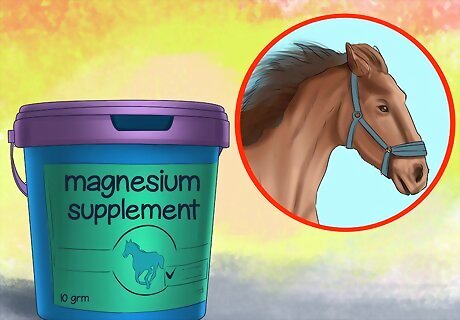
Measure the right amount. To begin with, try giving your horse 10 grams (1/3 ounce) of magnesium supplement a day. This should be safe regardless of the type of supplement used. If you feel that more is needed, consult with a veterinarian before increasing the dosage. If you increase the dose, be sure to follow the manufacturer’s instructions. This usually involves calculating a dosage based upon your horse’s weight and diet, which can be complicated. Consult with your veterinarian before increasing the dosage. If you decide to dose the horse yourself, understand that increasing the dosage may result in diarrhea and dehydration. This could make your horse very ill and possibly kill it.
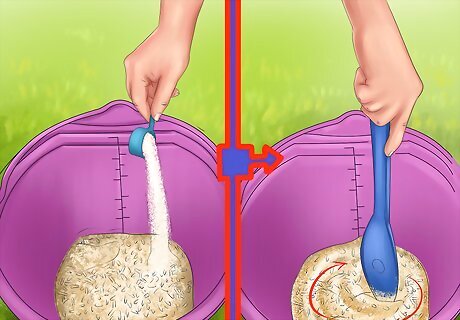
Mix the supplement into your horse’s feed. Once you have determined the correct amount of supplement to add, mix it into your horse’s feed. If it is grain, stir the supplement into the mix. You may also sprinkle it on their hay. However, they will ingest much less of the magnesium this way. These supplements all come in powder form and generally need to be mixed with your horses feed or another food. Avoid mixing magnesium supplements with oils. The oil may bond to the magnesium and make it more difficult for the horse to absorb.
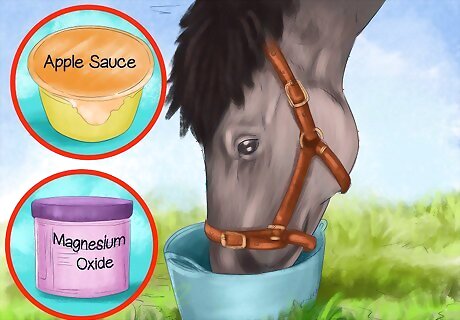
Mix the supplement with a treat. If you are giving your horse a bitter magnesium supplement, like magnesium oxide, consider mixing it with molasses or applesauce to mask the bad flavor. If you do not mix it with something, your horse will not eat the supplement.
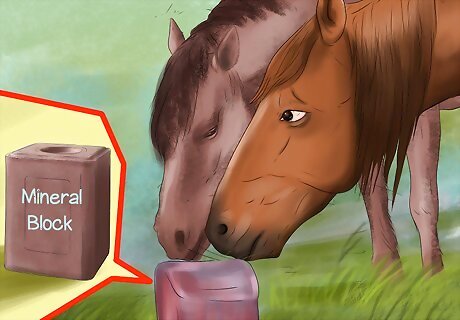
Purchase a mineral block as an alternative to feed mixes. If you do not want to mix the magnesium with your horse’s feed, you can also get a mineral block. These are typically designed for cattle, which require fewer trace minerals than a horse, but they can provide some help.
Choosing a Magnesium Supplement
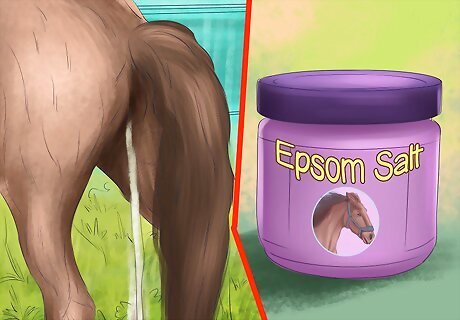
Try Epsom salts if you want an inexpensive supplement. Magnesium sulfate, or Epsom salts, is a cheap source of magnesium that you can feed your horse. You can find large quantities of it at most farm supply stores. However, because the horse will only absorb a small amount of magnesium from Epsom salts, you will need to feed them more of it. In turn, this increases the risk of your horse developing diarrhea and dehydration. Talk with your veterinarian before administering any supplements.
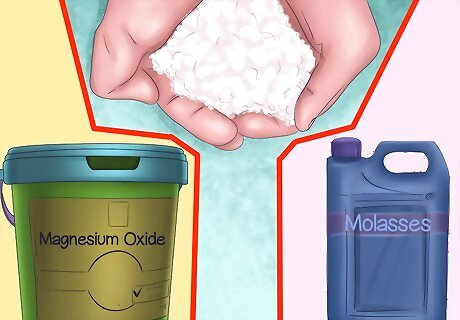
Use magnesium oxide for a higher concentration of magnesium. This mineral will give you the most bang-for-your-buck when it comes to magnesium supplements. Unlike Epsom salts that deliver a small amount, magnesium oxide has a much higher magnesium concentration and, therefore, provides your horse with more of the mineral. This means that a little of the compound can go a long way. However, it is very bitter, so you will likely have to mask the flavor. Try mixing magnesium oxide with salt for the best results. Consider mixing the magnesium oxide with applesauce or molasses to hide the bitter taste.
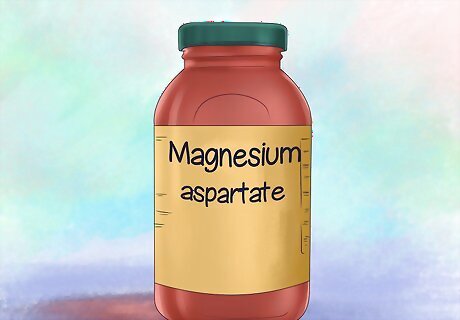
Get magnesium aspartate for most efficient absorption. This magnesium supplement is twenty percent magnesium and highly water-soluble. This means that you do not need a lot, and what you use will be quickly absorbed through the lining of your horse’s intestines. This is a higher end horse supplement, so you might want to evaluate whether it is worth using over cheaper options.
Ask your vet to recommend a general vitamin supplement. If your horse has a heavy workload, it may benefit from a multivitamin that includes magnesium. Horse multivitamins usually come in the form of a powder, paste, or pellets. Your vet can recommend a high-quality multivitamin that meets your horse’s nutritional needs.
Determining Whether Your Horse Needs Magnesium
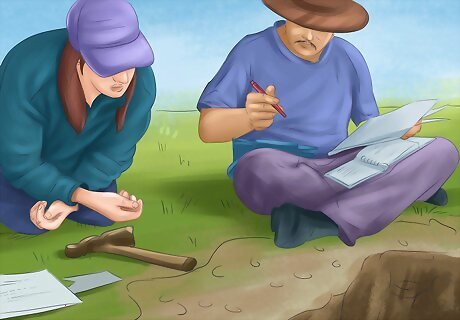
Research your soil’s mineral makeup. If you soil is low in magnesium, the grass that grows in it will be low in mineral as well. Considering that your horse receives the majority of its daily magnesium needs through a normal forage diet, it is important to understand if your soil is helping or hindering those needs. You can hire a soil testing service or test it yourself using a commercial test kit. The easiest way to avoid magnesium deficiency in your horse is to properly maintain your pastures.
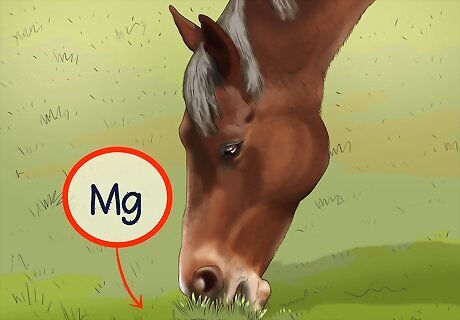
Evaluate magnesium levels in new grass or feed. Depending on the soil that they grow in, grasses can be magnesium deficient. The same is true of horse feed. In turn, this can cause your horse to develop a magnesium deficiency. Make sure that the grass and feed that your horse is eating are high in magnesium and other important minerals. Your retailer or distributor should provide information on the mineral make up of their feed.
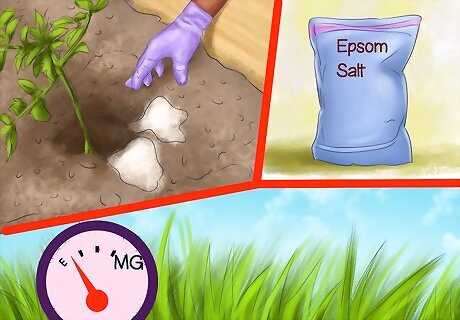
Consider what time of year it is. Because magnesium is water-soluble, it is easily leached from the ground during rainy seasons. If it has recently rained a lot, the grass will likely not have enough magnesium in it, leading to your horse developing a deficiency. You can increase the magnesium in the soil by sprinkling dolomite or Epsom salts in the field or pasture where your horse feeds.
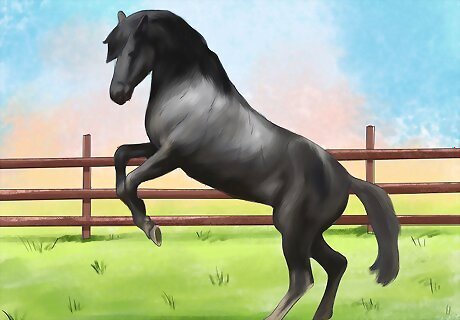
Observe if your horse seems nervous or skittish. Many consider skittishness a symptom of magnesium deficiency in horses. In fact, magnesium is often recommended as a supplement to help horses relax. If your horse seems more timid than usual, they may be suffering from a magnesium deficiency. There is little scientific evidence to support this claim. If your horse is acting anxious, consult your veterinarian before giving it any supplements.












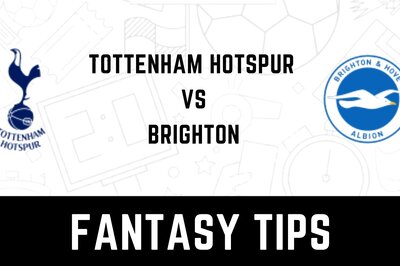







Comments
0 comment